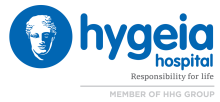A scientific meeting on “Women & Diabetes Mellitus” took place at the N. Louros Conference Center, MITERA Hospital, on Sunday November 19, 2017. The Meeting was organized by HYGEIA Group, with the aim of highlighting the difficulties encountered in the prognosis, diagnosis and treatment of women with diabetes. The event coincided with World Diabetes Day 2017, which was dedicated to women. Diabetes mellitus is one of the challenges posed to public health in the 21st century. Around 199.5 million women developed diabetes in 2015. This number is expected to rise to 313.5 million by 2040. The speakers covered all age groups (adolescence, reproductive age, advanced age) as well as individual conditions of major importance, such as diabetes during pregnancy and cardiovascular complications.
Significant conclusions were drawn, including how evident it is that proper and multifaceted care for women with diabetes not only ensures better quality of life, but can also meet one of the most significant targets for a woman, i.e. to bear children. Consequently, a woman with diabetes must not only be monitored during pregnancy, but also before that.
Furthermore, women with diabetes may manifest various hormonal imbalances that are not only related to metabolism, but may also affect all the endocrine glands. A significant part of the Meeting was dedicated to young women with polycystic ovary syndrome (PCOS). PCOS is one of the leading causes of diabetes mellitus type 2 in women of reproductive age, both during pregnancy and later on in life. Specifically, 30-40% of women with PCOS develop impaired glucose tolerance, i.e. prediabetes, while 7.5-10% of women with PCOS suffer from diabetes mellitus type 2. Both these rates are quite high compared to healthy women of the same age.
Awareness, a multidisciplinary approach and patient-doctor cooperation are the foundations for smooth disease progress and the best possible prognosis, whatever the age or life stage of a woman with diabetes.




































